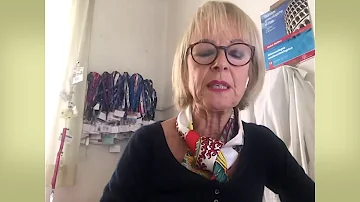Chi vuole entrare nell ué?
Sommario
- Chi vuole entrare nell ué?
- Quando sono entrati i vari paesi nell'unione europea?
- Quando sono entrati i paesi nell ué?
- Come si è creata l'Unione europea?
- What is the relationship like between the EU and Morocco?
- What percentage of Morocco's exports are to the EU?
- What is the European Parliament doing in Morocco?
- What is the EU-Moroccan rules of origin?

Chi vuole entrare nell ué?
Allargamento futuro dell'Unione europea Al momento ci sono cinque paesi ufficialmente candidati all'adesione: Turchia (candidata dal 1999), Macedonia del Nord (candidata dal 2004), Montenegro (candidato dal 2010), Serbia (candidata dal 2012) e Albania (candidata dal 2014).
Quando sono entrati i vari paesi nell'unione europea?
Successivi allargamenti dell'UE
- 2013: Croazia.
- 2007: Bulgaria e Romania.
- 2004: Cipro, Estonia, Lettonia, Lituania, Malta, Polonia, Repubblica ceca, Slovacchia, Slovenia e Ungheria.
- 1995: Austria, Finlandia e Svezia.
- 1986: Portogallo e Spagna.
- 1981: Grecia.
- 1973: Danimarca, Irlanda e Regno Unito.
Quando sono entrati i paesi nell ué?
I sei paesi che fondarono l'UE nel 1957 sono: Belgio, Francia, Germania, Italia, Lussemburgo e Paesi Bassi. Numerosi altri paesi dell'Europa occidentale hanno aderito dopo il 1973. diventata il 28° paese membro. Chi può entrare nell'UE?
Come si è creata l'Unione europea?
Trattato di Roma (1957-92) La prima unione doganale fra paesi europei, la cosiddetta Comunità economica europea, CEE, fu istituita mediante il Trattato di Roma del 1957 firmato da Belgio, Francia, Italia, Lussemburgo, Paesi Bassi e Germania occidentale.
What is the relationship like between the EU and Morocco?
- Trade and investment relations between the EU and Morocco are intense: the EU is Morocco’s leading trade partner, and Morocco is the EU’s biggest trade partner among the Southern Neighbourhood (Algeria, Egypt, Israel, Jordan, Lebanon, Libya, Morocco, Palestine*, Syria and Tunisia).
What percentage of Morocco's exports are to the EU?
- The total share of Moroccan exports to the EU is 56 %, and its share in imports is 47.3 %. Morocco’s trade with the EU is growing fast: between 20, the volume of trade between the EU and Morocco increased by over 24 %, reaching a value of €26 billion in 2012.
What is the European Parliament doing in Morocco?
- The European Parliament has played a stronger role in the partnership with Morocco since the Lisbon Treaty. This has stimulated parliamentary exchange, in particular with the EU-Morocco Joint Parliamentary Committee. The European Economic and Social Committee has also signed a partnership agreement with the Moroccan Economic and Social Council.
What is the EU-Moroccan rules of origin?
- It brings together the EU, Morocco, and other partners in Europe and the Mediterranean to support regional integration by creating a common system of rules of origin. Rules of origin are technical criteria which determine whether a specific product qualifies for duty-free or other preferential access under a given trade agreement.















